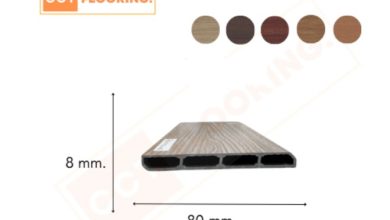8 Key Considerations For The Top Quality Residential Roofing Services

Roofing is a crucial aspect of any building, be it commercial or residential. When it comes to residential roofing services, certain key considerations play a pivotal role in ensuring top-notch quality and long-lasting durability. In this article, we will delve into the essential factors that homeowners should keep in mind When seeking top-quality residential roofing services, several key considerations come into play, such as material durability, installation experience, and warranty options. It’s crucial to choose a service that understands local climate conditions and building codes to ensure long-lasting results. For reliable solutions in your area, partnering with a Roofing Company Dayton can provide the expertise and support needed for your roofing projects.
1. Material Selection
The choice of roofing material is paramount in determining the overall quality and longevity of a residential roof. Common options include asphalt shingles, metal roofing, tile roofing, and wood shakes. Each material has its pros and cons in terms of durability, cost, and aesthetics. It’s crucial to work with a roofing contractor who can guide homeowners in selecting the most suitable material based on their budget, climate conditions, and desired aesthetic appeal.
2. Contractor Reputation
The reputation and experience of the roofing contractor are key considerations when opting for residential roofing services. A reputable contractor with years of experience in the industry is more likely to deliver quality workmanship and adhere to industry standards and safety protocols. Homeowners should research and read reviews, ask for references, and verify the contractor’s credentials before hiring them for the job.
Ensuring a durable and energy-efficient home goes beyond quality roofing; proper insulation plays a crucial role in maintaining indoor comfort and reducing energy costs. Partnering with first defense insulation can help homeowners achieve optimal thermal protection, enhancing the effectiveness of residential roofing systems. With professional insulation solutions, you can safeguard your home against temperature extremes while improving overall energy efficiency.
3. Licensing and Insurance
Ensuring that the commercial roofing contractor is licensed and adequately insured is non-negotiable. A licensed contractor is legally authorized to perform roofing work and is more likely to comply with building codes and regulations. Insurance coverage, including liability insurance and worker’s compensation, protects homeowners from liability in case of accidents or property damage during the roofing project.
4. Warranty Coverage
A reputable residential roofing contractor should offer warranty coverage on both materials and workmanship. Homeowners should inquire about the duration and extent of the warranty provided, including any exclusions or limitations. A comprehensive warranty ensures peace of mind and protection against unexpected issues or defects post-installation.
5. Energy Efficiency
Energy-efficient roofing options have gained popularity due to their ability to reduce energy consumption and lower utility bills. Homeowners can opt for cool roofing materials that reflect sunlight and heat, thus reducing the need for air conditioning during hot seasons. Additionally, proper insulation and ventilation are essential components of an energy-efficient roofing system.
6. Local Regulations and Permits
Compliance with local regulations and obtaining necessary permits is essential when undertaking residential roofing projects. Building codes, zoning ordinances, and homeowners’ association guidelines may dictate certain requirements regarding roofing materials, colors, and installation procedures. A reputable contractor should be well-versed in local regulations and ensure full compliance throughout the project.
7. Environmental Impact
With growing awareness of environmental sustainability, homeowners may prioritize eco-friendly roofing options. Recyclable materials, such as metal roofing and composite shingles, offer environmentally conscious choices for residential roofs. Additionally, proper disposal of old roofing materials and adherence to eco-friendly practices during installation contribute to reducing environmental impact.
8. Maintenance and Inspection
Regular maintenance and periodic inspections are vital for prolonging the lifespan of a residential roof. Homeowners should schedule routine inspections with their roofing contractor to identify and address any issues promptly. Proper maintenance, such as cleaning gutters, repairing leaks, and replacing damaged shingles, can prevent costly repairs or premature roof replacement.
Top-quality residential roofing services encompass a range of key considerations, including material selection, contractor reputation, licensing and insurance, warranty coverage, energy efficiency, regulatory compliance, environmental impact, maintenance, budget considerations, and communication. By prioritizing these factors and working with reputable professionals, homeowners can ensure a durable, aesthetically pleasing, and long-lasting roof for their residential properties.



